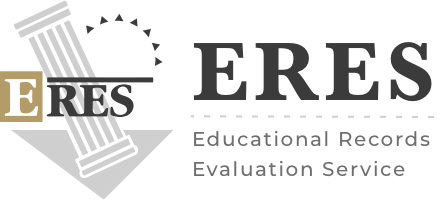Every year on June 20th, the world observes World Refugee Day as a tribute to the brave individuals who have been uprooted by war, persecution, and violence. These heartbreaking circumstances force millions to flee their homes, leaving behind not just their loved ones but also their careers, education, and sense of security. But as war continues in different parts of the world, the only casualties are its own people. This results in countless individuals still trying to seek refuge with only hope for survival and a chance to rebuild a better life in their hand.
The host country plays a crucial role in serving prospects for a better future for them. Some refugees are fortunate enough to carry their personal documents with them when they flee, making their transition into employment or education somewhat smoother. However, in a far more unfortunate reality, a vast number of refugees lose access to their academic records or professional certifications, creating another significant obstacle in their search for better opportunities.
How Credential Evaluation Bridges the Gap
Professionals may have to start over since they find it difficult to prove their credentials to institutions and employers in their new home country. In order to meet their needs, they can feel pressured to work in an area that is outside of their area of expertise.
This is where credential evaluation fills the gap and plays a transformative role. They serve as a bridge by helping refugees in offering a chance to them to continue education and work, and even contribute to industries where their expertise is needed through qualification validation. Through evaluation and assessment, displaced professionals—including doctors, nurses, teachers, engineers, and other qualified experts—can regain their professions. By verifying their credentials, these refugees are able to resume practicing in their professions of choice, which benefits them and the workforce of the host country.
Understanding the Credential Evaluation Process
To confirm their educational background and qualifications, accredited organizations gather information and available evidence from refugees during the credential evaluation process. Transcripts, degrees, licenses, and certifications are among the documents required to guarantee that refugees can be employed in their host country and fully engage in the educational system.
However, in situations where copies of the documents are not available, whether missing or inaccessible, accredited organizations step in to offer alternative verification methods. One solution is by conducting interviews where the refugee’s educational history must be recreated in a great detail. During this assessment, refugees will then be required to recollect their educational history including but not limited to degrees obtained, year of admission and graduation, grades, and school background. Additionally, a comprehensive overview of their work experience is compiled, ensuring that their professional background is also considered.
Accredited organizations then evaluate and corroborate the refugee’s qualification comparing them to local educational standards to establish equivalencies. This process ensures that prior education and training obtained by the refugee are clearly recognized and valued in the host country. The process may involve contacting the issuing constitution, reviewing the academic curriculum or use the available international databases for verification.
While the evaluation may take time, particularly in cases where documents are missing, once verified by accredited organizations, refugees can now start to rebuild their life. The choice is up to them whether they want to pursue their studies or apply for jobs. They can now finally move forward.
The Challenges Refugees Face
Refugees continue to face obstacles in spite of the efforts and benefits provided by the host country and the evaluation organizations. The expense associated with evaluation services could be a significant barrier, adding to the difficulty of lost or inaccessible documents. Since they are new to the host country, it is difficult for them to find a source of money and afford the cost of credential evaluation.
Recognizing this issue, ERES is one of those accredited organizations who have stepped up to provide free or subsidized credential evaluations to support refugees in affected countries such as Afghanistan, Iraq, Syria, Turkey, and Ukraine. ERES streamlines credential evaluation, ensuring refugees can transition smoothly into employment or further education
But even with these efforts, a large number of refugees are still not aware of the several support programs and credential evaluation services that are accessible to them. The lack of information prevents them from utilizing the available essential resources around them.
Expanding Awareness and Support
Globally, governments as well as humanitarian organizations are now taking action to aid refugees. Just this December 2024, in a press release from the United Nations High Commissioner for Refugees (UNHCR,) a staggering $1.143 billion was pledged to support its efforts in providing life-saving aid, protection, and long-term solutions for refugees affected by the on-going wars. This commitment just shows the collective effort to support refugees in rebuilding their lives. For more information, see UNHCR’s press release titled “UNHCR receives record level of early funding to support refugees and displaced people as emergencies escalate”.
As tensions among several countries continue, ERES serves as a bridge ensuring every diploma, every skill, and every experience matters. Through their free services, they help a lot of refugees to get back on their feet and should not be denied many opportunities. One of ERES’s missions is to transform survival stories into success stories. Chances in this world are unlimited, as they might say.





